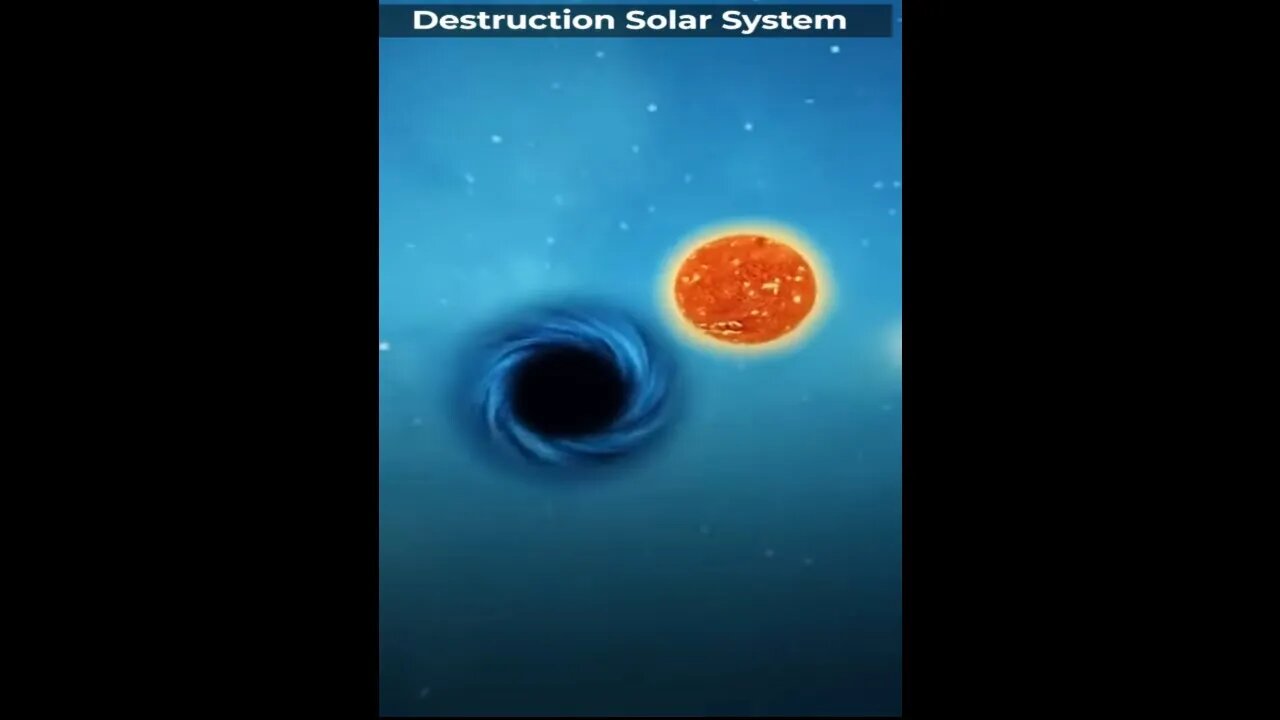Premium Only Content

How a Blackhole Destroy Our Solar System?
A black hole has the potential to significantly disrupt or destroy a solar system, including our own, if it were to come into close proximity. Here's a hypothetical scenario of how a black hole could affect our solar system:
Gravitational Disturbance: As a black hole approaches our solar system, its immense gravitational pull would start to disrupt the orbits of the planets. The black hole's gravity would exert a much stronger force compared to the Sun, causing planets to deviate from their regular paths.
Altered Orbits: The gravitational disruption would lead to drastic changes in the orbits of the planets. Their paths would become highly elliptical or completely destabilized, leading to collisions between planets or their expulsion from the solar system altogether.
Tidal Forces: As the black hole gets closer, the tidal forces it generates would intensify. Tidal forces are the result of the difference in gravitational pull between the near and far sides of an object. These forces could cause immense tidal heating and deformation on planets, leading to violent geological activity, volcanic eruptions, and eventually the destruction of the planet's structure.
Accretion Disk Formation: If a black hole were to pass close enough to our Sun, it could strip away some of its outer layers, creating an accretion disk of matter swirling around the black hole. This process would drastically reduce the Sun's mass and energy output, leading to a significant disruption in the stability of our solar system.
Gravitational Capture: In the worst-case scenario, if a black hole were to directly collide with the Sun, it could result in the black hole capturing the majority of the Sun's mass. This would cause the black hole's mass to increase, while the Sun would cease to exist. The destruction of the central star would disrupt the gravitational balance of the solar system, resulting in catastrophic consequences for the remaining planets and other celestial bodies.
It's important to note that the above scenario is highly hypothetical, as our current understanding of black holes suggests that they are typically formed from the collapse of massive stars, located at great distances from our solar system. The chances of a black hole directly approaching and disrupting our solar system are extremely remote.
-
 2:05:41
2:05:41
TimcastIRL
5 hours agoTrump SLAMS Ukraine President In TENSE WH Meeting, The War MAY END w/ Rob Smith | Timcast IRL
134K73 -
 10:31:05
10:31:05
Dr Disrespect
13 hours ago🔴LIVE - DR DISRESPECT - PGA TOUR 2K25 LAUNCH DAY
178K27 -
 2:30:04
2:30:04
Laura Loomer
4 hours agoEP105: MISSING: The Epstein Files
47.1K13 -
 1:46:14
1:46:14
Kim Iversen
5 hours agoTrump to Zelenskyy: 'You're Gambling with World War III'
58.6K99 -
 55:28
55:28
Glenn Greenwald
7 hours agoGlenn Reacts to Trump-Zelensky Exchange and Takes Q&A from our Members | SYSTEM UPDATE #415
101K185 -
 4:26:54
4:26:54
Nerdrotic
9 hours ago $29.33 earnedMarvel PANIC MODE! Kathleen Kennedy GONE?! Hollywood DEI Dead | Friday Night Tights 342 Nick Freitas
118K32 -
 1:30:03
1:30:03
Flyover Conservatives
23 hours agoZelensky Fail... God Called IT!; From Prison to the White House: Angela Stanton King’s Unbelievable Redemption Story | FOC Show
39.6K5 -
 1:06:14
1:06:14
IsaacButterfield
9 hours ago $1.47 earnedFree Speech Is Dead | Did Trump Go Too Far? | Sexist Job
37.5K17 -
 1:02:59
1:02:59
Sarah Westall
11 hours agoEpstein Files, Dueling Cabal Factions and Gold from Ancient Civilizations w/ Dave Hodges
67.5K18 -
 LIVE
LIVE
I_Came_With_Fire_Podcast
9 hours ago“Trump-Zelensky BEATDOWN | Europe BUILDS MUSCLE | NEWSCUM Podcast”
396 watching